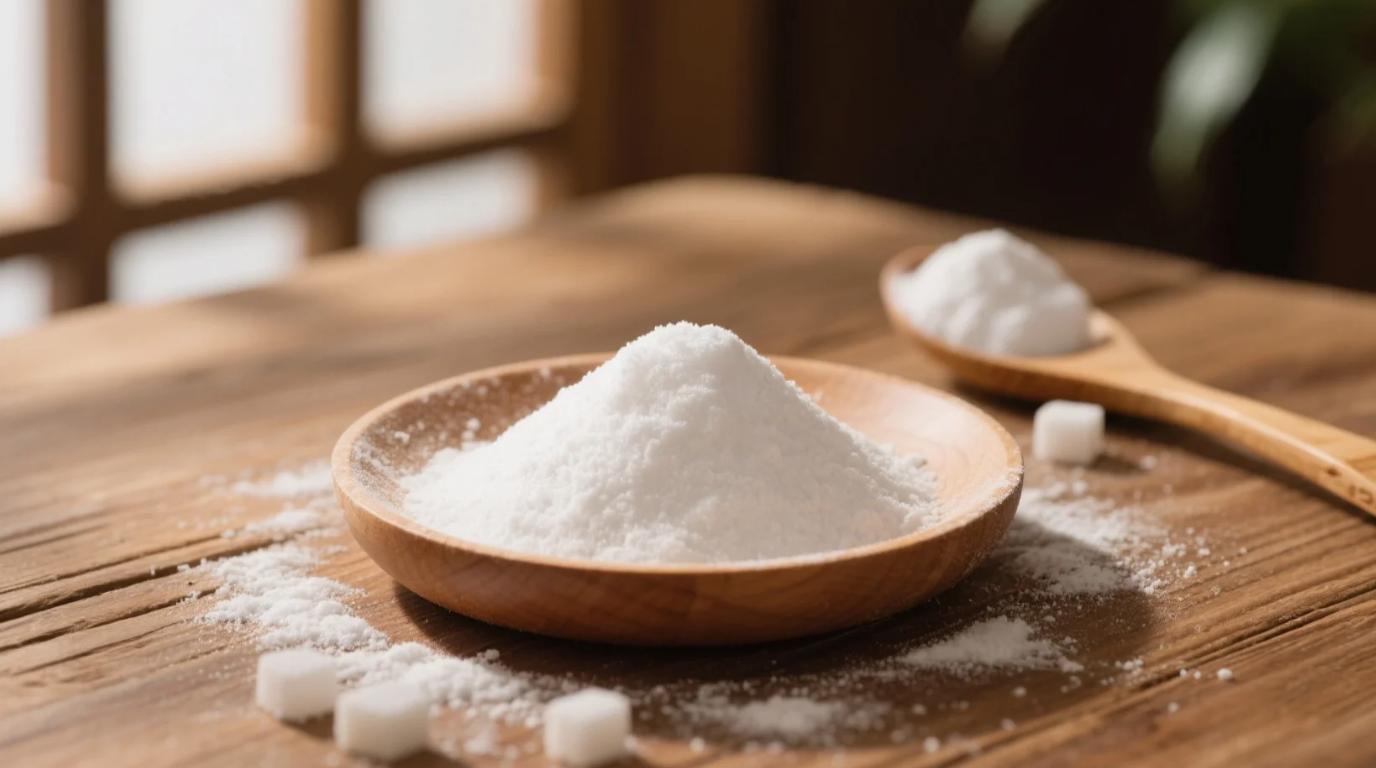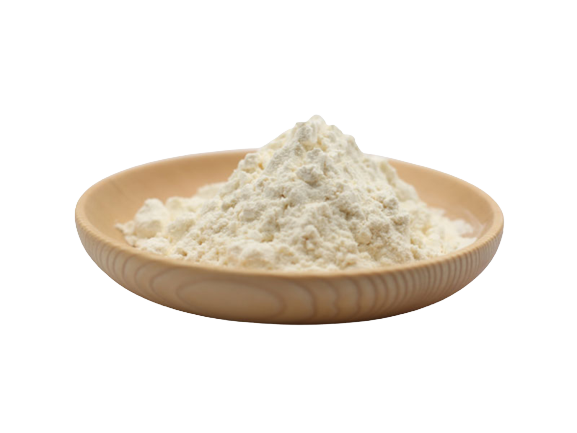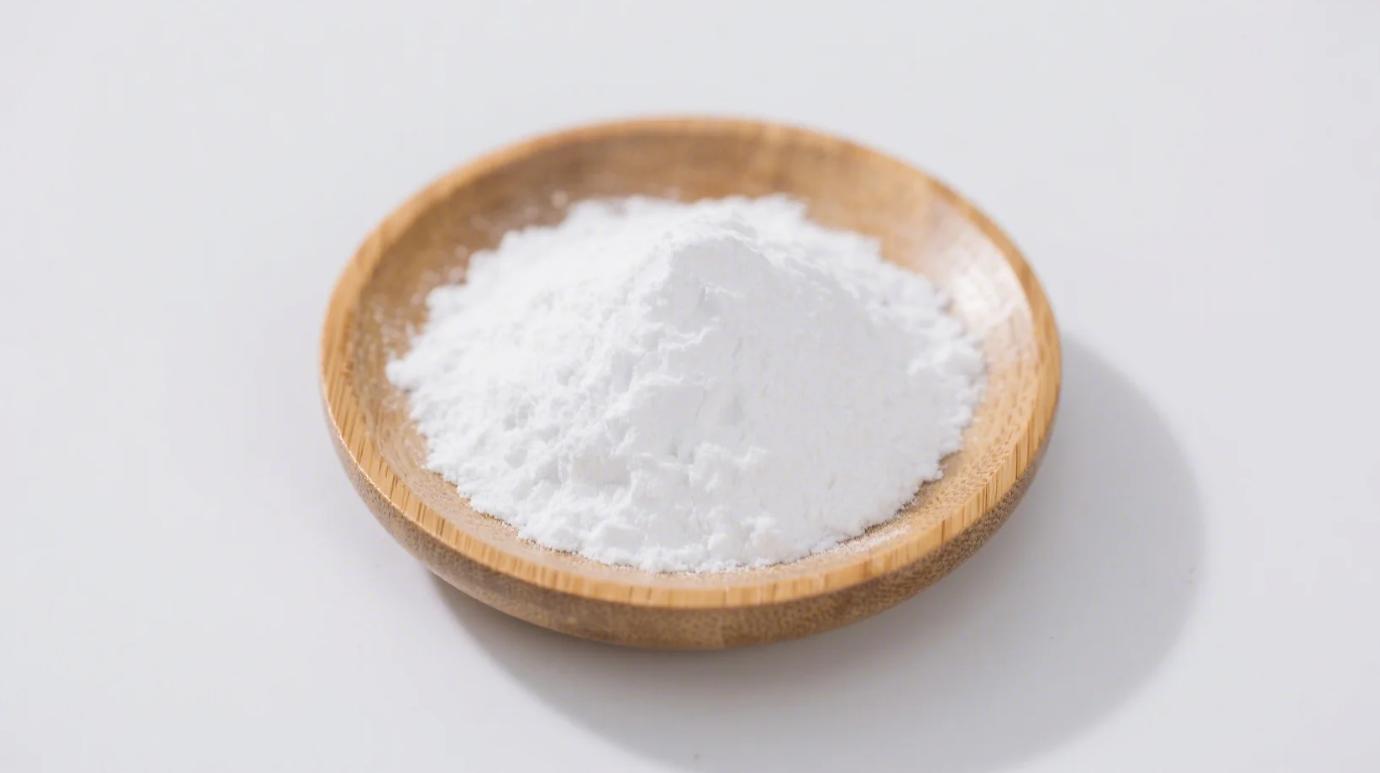Erythritol, a popular sugar alcohol, lurks in countless processed foods as a “zero-calorie” sweetener. While it’s praised for its dental-friendly and low-glycemic perks, not all erythritol is created equal. Let’s uncover where erythritol hides, why organic erythritol powder stands apart, and how to avoid the pitfalls of conventional versions.
8 Processed Foods Loaded with Erythritol
- “Sugar-Free” Candies & Gums
- Why added: Mimics sugar’s texture without feeding cavity-causing bacteria.
- Brands: Werther’s Sugar-Free, Trident Gum.
- Keto Snacks (Bars, Cookies)
- Why added: Balances sweetness in low-carb recipes.
- Brands: Quest, HighKey.
- Protein Powders & Shakes
- Why added: Masks bitter protein aftertastes.
- Brands: Ghost Whey, Premier Protein.
- Diet Beverages
- Why added: Zero-calorie fizz without aspartame.
- Brands: Zevia Sodas, Vitaminwater Zero.
- Dairy Alternatives (Yogurts, Ice Cream)
- Why added: Prevents icy texture in non-dairy treats.
- Brands: Halo Top, So Delicious.
- Condiments & Sauces
- Why added: Cuts sugar in ketchup, BBQ sauce, and dressings.
- Brands: G Hughes, Primal Kitchen.
- Vitamins & Gummies
- Why added: Makes supplements palatable for kids.
- Brands: Olly, SmartyPants.
- Baked Goods (Breads, Muffins)
- Why added: Retains moisture in gluten-free products.
- Brands: Franz Keto, ThinSlim Foods.
The Problem with Conventional Erythritol
Most processed foods use erythritol derived from GMO cornstarch via chemical fermentation. Risks include:
- Pesticide Residues: Non-organic corn is often sprayed with glyphosate (linked to gut disruption).
- Digestive Issues: Bloating or diarrhea from additives like maltodextrin in blended sweeteners.
- Ethical Concerns: Mass-produced erythritol relies on fossil fuel-heavy fermentation.
Why Choose Organic Erythritol Powder?
Certified organic erythritol powder skips the junk, offering:
✅ Non-GMO, Organic Fermentation: Made from organic sugarcane or cassava—no glyphosate or synthetic enzymes.
✅ No Fillers or Additives: Pure erythritol, unlike store-bought blends mixed with aspartame.
✅ Eco-Friendly Production: Uses renewable energy and closed-loop water systems.
How to Spot Erythritol in Labels
- Look for: “Erythritol,” “sugar alcohol,” or “natural sweetener” in ingredients.
- Red Flags: “Zero net carbs” or “keto-friendly” often signal erythritol use.
DIY Healthier Swaps with Organic Erythritol
- Coffee Creamer: Blend 1 cup coconut milk + 2 tbsp organic erythritol powder + vanilla.
- Energy Bites: Mix dates, almond butter, and erythritol for a gut-friendly snack.
- Homemade Ice Cream: Whip erythritol with coconut cream and berries.
Who Should Avoid Erythritol?
- FODMAP Sensitive: Sugar alcohols may trigger IBS symptoms.
- Dogs: Toxic to pets—store securely!
- Purists: Some dislike its cooling aftertaste (mask it with monk fruit or stevia).
FAQs
Q: Does organic erythritol spike blood sugar?
A: No! It has a GI of 0 and doesn’t affect glucose or insulin.
Q: Is erythritol safe long-term?
A: Yes—studies show no adverse effects at <50g/day.
Q: Can I bake with it?
A: Yes! Use 1:1 like sugar, but add ⅓ more liquid.
Q: Shelf life?
A: Indefinite if kept dry (no moisture absorption).
Ready to Ditch Processed Erythritol?
Swap sneaky additives for certified organic erythritol powder—the pure, planet-friendly way to sweeten life without compromise. Bake, blend, or sprinkle guilt-free, knowing every crystal is clean and conscious.
Your pantry (and body) deserve better.
Related Products
Organic Monk Fruit Extract Powder
Zero-Calorie Natural Sweetener for Clean-Label Food, Beverage & Supplement Applications
Organic Cornstarch
Premium Gluten-Free Thickener & Stabilizer for Food, Pharma & Industrial Applications
Organic Erythritol Powder
Clean-Label Sugar Substitute for Food, Beverage, and Keto Products



